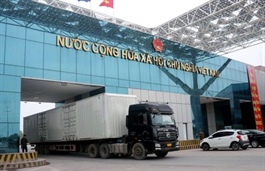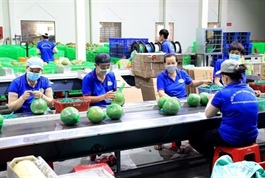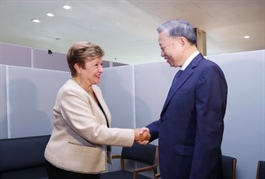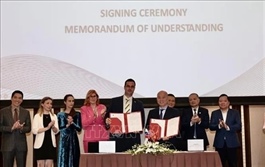ADB approves $2 million grant to support Việt Nam's typhoon disaster response
ADB approves $2 million grant to support Việt Nam's typhoon disaster response
The Asian Development Bank (ADB) has approved a US$2 million grant to assist the Government of Việt Nam in providing emergency and humanitarian services to residents affected by the Typhoon Yagi in the northern region of the country.
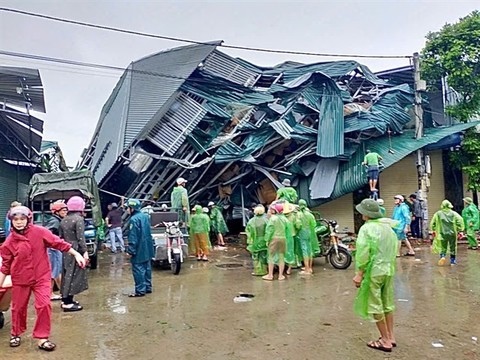
Locals are working together with authorities to address to the aftermath of Yagi Typhoon in Thạch Thất District, Hà Nội. — Photo Hà Nội Women's Union |
“We highly commend the extraordinary efforts of the Government and people of Việt Nam in responding to the damage caused by Typhoon Yagi,” said ADB Country Director for Việt Nam Shantanu Chakraborty.
“ADB’s grant will support wider government efforts to deliver immediate humanitarian relief. ADB is also committed to working with the government on post-disaster recovery in the affected provinces to build back better and improve resilience, which is critical in the face of accelerating natural hazards.”
The grant is funded by the Asia Pacific Disaster Response Fund, which aims to provide support to ADB’s developing member countries affected by major disasters triggered by natural hazards.
Typhoon Yagi, the strongest typhoon to hit Việt Nam in decades, made landfall on the northern coast of the country on September 7. As of September 24, 337 people have been killed or reported missing and another 1,935 people injured, according to the Việt Nam Disaster and Dyke Management Authority.
The typhoon and subsequent flooding and landslides caused widespread damage in 26 provinces, with an estimated 37 million people living in the affected areas. Initial economic loss across northern part of Việt Nam is estimated at around $2.6 billion.
ADB has been working with other development partners to support the government’s response to the disaster, including assessing assistance needs in the affected northern provinces.
ADB’s emergency assistance aims to help ensure that people living in disaster areas have access to basic medical and social services and resources to rebuild their lives and livelihoods and will continue to work closely with the government and other development partners to deliver humanitarian assistance in line with United Nations Resident Coordinator Disaster Response Plan.








